What will happen to Gaza and its people once Israel-Hamas war ends
The war in Gaza is far from over but debate has already begun on whether the Arab enclave will ever be allowed to exist as a free state or a military occupied territory.
World
Don't miss out on the headlines from World. Followed categories will be added to My News.
In 2005, and in a bid to break the stalemate in a peace process to end decades of tit-for-tat violence, Israel declared its occupation of Gaza over.
Israel Defence Force troops formally withdrew, taking with them, through forced evictions, the 9000 Jewish Settlers who took advantage of the military protection to set up townships.
The spectacle of the “full withdrawal” attracted positive international headlines, but in reality Israel never relinquished control of the Strip, with air, land and sea blockades restricting access of people, goods and services.
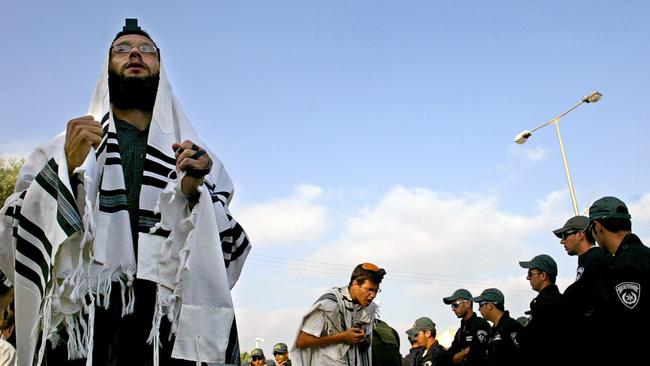
Fast forward to November 2023 and former UN special rapporteur Michael Lynk said it was a misnomer for Israel and the US to now talk about a “reoccupation” of Gaza since occupation never ended.
He said 2005 was akin to guards leaving the prison but taking the keys, allowing the population to roam freely only within the confines of the walls with no ability to take effective control of their lives.
Lynk was responding to Prime Minister Benjamin Netanyahu’s declaration this week that Israel would take control of security in Gaza for an indefinite period post conflict.
Post-war Gaza concepts have preoccupied Western and Arab leaders almost as much as the actual war, which has entered its second month and show no signs of abating.
What that post-conflict future looks like is anyone’s guess.
It would have to mean an Israeli military presence in the short term for sure but MPs from Netanyahu’s hard right faction have also said it should mean allowing Jewish Settlers to re-establish townships within the Arab-dominated territory with the IDF to ensure their safety and access.
Israeli government officials have sought to tone down the reoccupation overtures but made clear Hamas could not be allowed to exist.
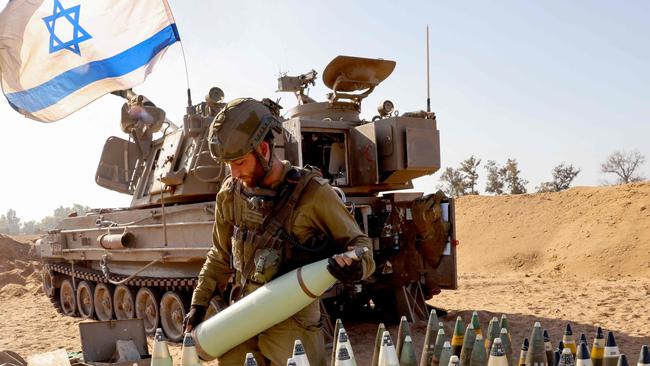
“We can come up with any mechanism we think is appropriate, but Hamas will not be part of it,” said Benny Gantz, the former defence minister who joined the emergency unity Netanyahu government at the outbreak of the conflict.
So given Israel already controls all the food, water, fuel, power and people that can leave or enter the Strip, what could Gaza’s future look like?
All analysts agree that in the short term it would most definitely have to involve occupation by Israeli forces to stamp out lingering Hamas fighters, which at one point were said to number 30,000.
Intermittent strikes on militants have been branded in the past as “mowing the grass” by the IDF, and it’s more than likely Israel will now want more permanent control of the lawn.
Equally, in the longer term an international force could be created to ensure Hamas does not regroup while international aid groups attempt to rebuild the decimated territory.
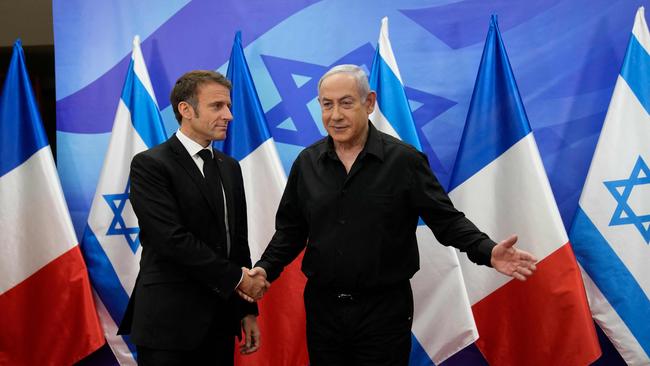
Some say a creation of a form of another “Blue Line” could be needed.
The Blue Line is the demarcation between Lebanon and Israel and Lebanon and occupied Golan Heights, created in the late 1970s and controlled by UN troops as a temporary border control. Some 10,000 troops have been drawn from 46 nations, including Australia, to fill this force. It has largely held Hezbollah militants at bay, although it has been unable to stop rockets being fired into Israel territory.
But that would only be a short term physical fix with the future of Gaza and a Palestinian state needing to be determined by politics.
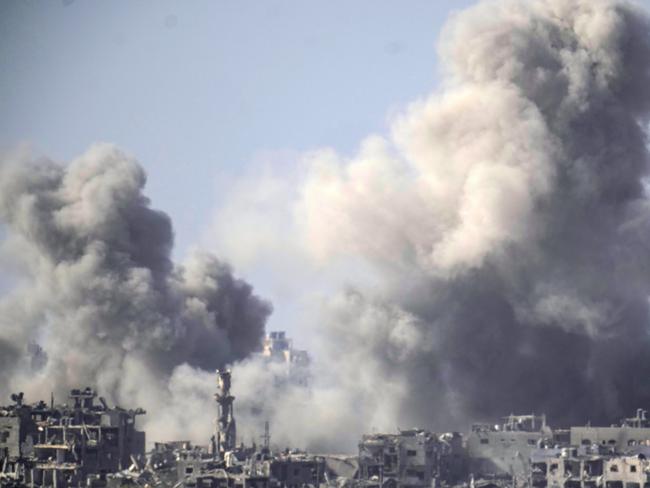
A Palestinian government could be allowed to run the territory – which has been run by Hamas’ political and military wing since 2007 – but its strength has come into question. Even in the West Bank, where the Palestinian Authority leadership is based, they remain deeply unpopular with Hamas’ political leadership attracting more support and exerting more influence.
But regardless the United States has said Palestinians should govern Gaza – not Israeli forces – as it suggested red lines to peace.
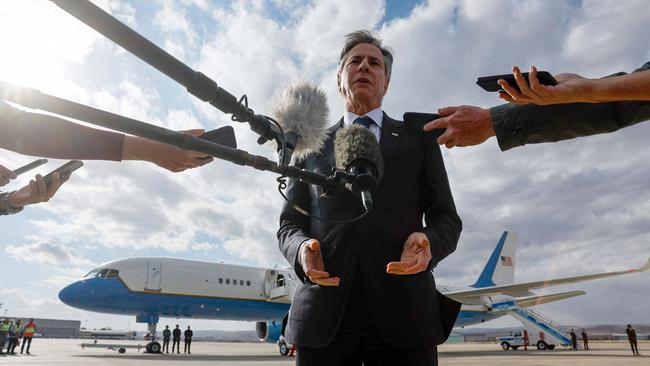
“No reoccupation of Gaza after the conflict ends. No attempt to blockade or besiege Gaza. No reduction in the territory of Gaza,” Secretary of State Antony Blinken said this week, adding Palestine should unify Gaza and West Bank in a subtle hint to Israel to relinquish its effective grip of both.
It was the West Bank and Netanyahu’s push to allow settlers to forcibly occupy Palestinian territory under IDF protection that Hamas claimed was behind its horrific October 7 assault including the 1400 innocent Israelis its militants murdered and random 240 hostages they seized. More than 10,500 Palestinians have subsequently been killed in the conflict in retaliation in both Gaza and West Bank.
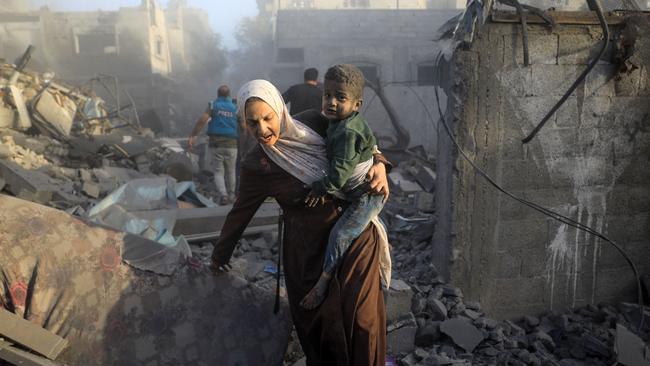
The Palestinians say their future has to be in a free state and united Gaza and West Bank.
“We are not going to go to Gaza on an Israeli military tank,” Palestinian Authority Prime Minister Mohammad Shtayyeh said. “We are going to go to Gaza as part of a solution that deals with the question of Palestine, that deals with occupation.”
UN Secretary-General Antonio Guterres said the “best-case scenario” would be a “hopefully reinvigorated” Palestinian Authority.
This could be a renewed ‘Two State Solution’ which historically neither Palestine nor Israel supported.
But one thing there is broad agreement on is the bloodshed now will change how things have worked in the past.
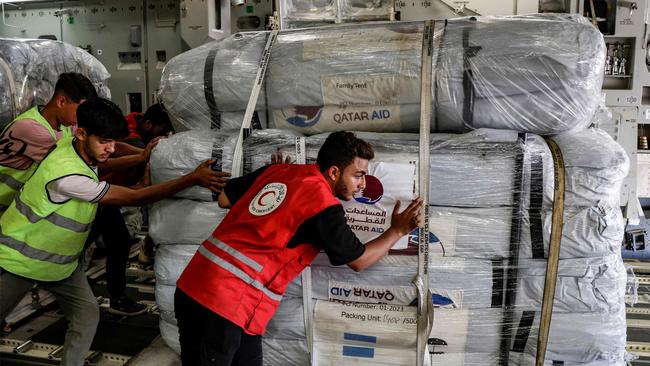
Gaza citizens will have to determine whether they want to live in peace and gain some prosperity but that will only be determined by how much freedom the Israelis will allow them to have. The hate on both sides will also have to be overcome or at least controlled.
The US has looked at such questions before not just here but in Vietnam in the 1970s and Afghanistan and Iraq in the 1990s and 2000s. In each case, only moderate outcomes were achieved.
Egypt and Jordan, both of which have made peace with Israel decades ago, will no doubt have a role in determining how Palestinians can co-exist with Israel.
The rest of the Arab world, notably Qatar, Saudi Arabia and the United Arab Emirates, will also need to be involved – although more likely in the mammoth physical rebuilding of Gaza that will be required.
In the meantime, the war continues – and like most conflicts, with diminishing returns for those both directly and indirectly involved.
More Coverage
Read related topics:Israel Conflict




